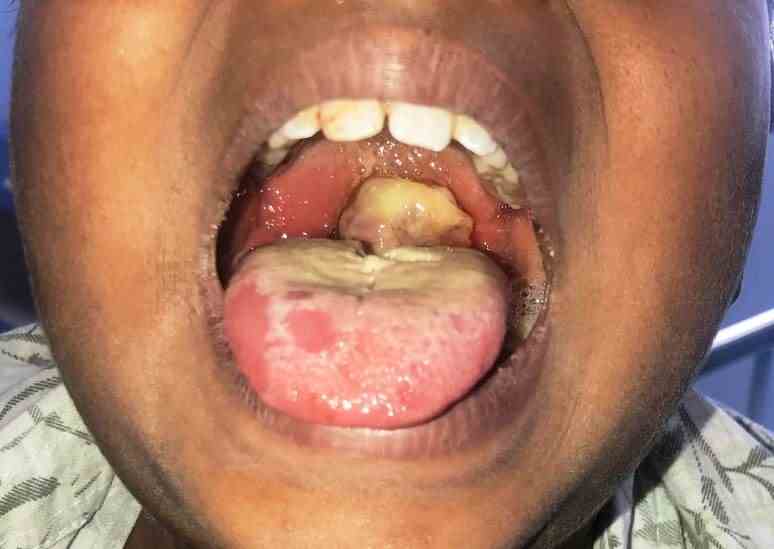The National Primary Health Care Development Agency (NPHCDA) on Monday, said a total of 83 persons have died of diphtheria in Nigeria, out of an estimated 2,455 suspected cases reported within 15 months.
In an update on Nigeria’s Diphtheria outbreak at a press conference in Abuja, the agency’s Executive Director, Dr Faisal Shuaib, also said as of July 27, 2023, 836 of the cases have been confirmed in 33 local government areas across eight states in the country.
The states, he mentioned, are Cross River, Kano, Katsina, Kaduna, Lagos, Osun, Yobe, and FCT.
While admitting that there was concern over the outbreak of Diphtheria cases across the country, he regretted that:” Tragically, 83 deaths have been reported from these confirmed cases, making vaccination against this deadly disease critically important, especially for our children.”
He said:” From May 2022 to July 2023, an estimated 2,455 suspected cases has been reported in 26 states. As of July 27, 2023, 836 of these cases have been confirmed in 33 LGAs across 8 states: Cross River, Kano, Katsina, Kaduna, Lagos, Osun, Yobe, and FCT. Tragically, 83 deaths have been reported from these confirmed cases, making vaccination against this deadly disease critically important, especially for our children.”
The NPHCDA boss explained that, Diphtheria is a highly contagious vaccine-preventable disease caused by the bacterium Corynebacterium diphtheria, mainly spread through direct contact with an infected person or exposure to airborne droplets.
” It poses a severe risk to people of all ages, particularly our children. Unfortunately there are still children who are unvaccinated despite the availability of vaccines in the country’s routine immunization schedule.
“The disease primarily affects the respiratory system, and symptoms include fever, cough, runny nose, sore throat, neck swelling, and breathing difficulties. If left untreated, these symptoms can lead to death, with a higher risk for partially vaccinated or unvaccinated children in crowded and unsanitary areas.
“Adherence to proper hygiene practices is crucial in preventing the spread of diphtheria. Simple yet effective measures like hand hygiene, maintaining good cough etiquettes, environmental cleaning, eating nutritious balanced meals, isolating and quarantine of suspected cases can significantly reduce the risk of infection,”he said.
According to him,”Diphtheria is totally preventable through vaccination.”
” In Nigeria, pentavalent vaccines are used to protect against diphtheria and are administered to children at 6 weeks, 10 weeks, and 14 weeks of age, with additional doses being given during campaigns.”
“Despite the efforts of the Federal Government to provide safe and cost-effective vaccines, a significant number of children remain unvaccinated or partially vaccinated, compromising the country’s goal of achieving population immunity. Suboptimal vaccination coverage has been the main factor contributing to these outbreaks, with the most affected age group being those between 2-14 years,”he added.
Dr Shuaib said the NPHCDA, in collaboration with the Federal Ministry of Health, the Nigerian Centre for Disease Control (NCDC), states and partners was mobilizing all necessary resources to respond effectively to this outbreak.
” A comprehensive response plan has been activated to detect cases early, contain the spread, and prevent further transmission through a multi-phased strategy.
“To facilitate our immediate response plan, we are leveraging surveillance data from NCDC and direct information from the states to ensure effective planning and resource deployment. The Agency is working closely with partners to ensure adequate supplies of Tetanus Td for children 4 to 14 years and Pentavalent vaccines for children under 4 years.
“Currently, we are collaborating with the affected state teams and other stakeholders to conduct intensified mass vaccinations for identified at-risk populations in the affected states, administering pentavalent and tetanus & diphtheria vaccines. Additionally, we are conducting awareness campaigns to educate the public about the disease, its symptoms, and preventive measures,”he further said.
He disclosed that the response to the ongoing diphtheria outbreak will be carried out in two phases.
He explained that, ”Phase 1, the immediate response, will encompass 25 Local Government Areas (LGAs) across four States: Bauchi, Katsina, Yobe, and Kaduna. This phase is scheduled to begin on the 7th of August 2023 and will continue until the 11th of August 2023.
“The Phase 2 will cover outbreak response in 171 LGAs. Six States (Kano, Katsina, FCT, Yobe, Kaduna, and Bauchi) will have a state-wide outbreak response, while there will be targeted outbreak responses in LGAs across eight States: Jigawa (8 LGAs), Borno (4 LGAs), Osun (4 LGAs), Lagos (3 LGAs), Zamfara (3 LGAs), Gombe (3 LGAs), Plateau (1 LGA), and Nasarawa (1 LGA). This phase is planned to be conducted in three rounds. The first round will commence on 21st August 2023, followed by the second (2nd) and third (3rd) rounds tentatively set for 18th September 2023 and 16th October 2023, respectively. Each of these three rounds will span five days.
“The geographical areas to be covered in the response are depicted in the maps shared with you. The vaccination campaign will utilize both fixed and mobile teams.”
He advised parents and caregivers to take their children, from birth to 14 years, to nearby health facilities for vaccination with the pentavalent or Td vaccines and other age-appropriate vaccines.











